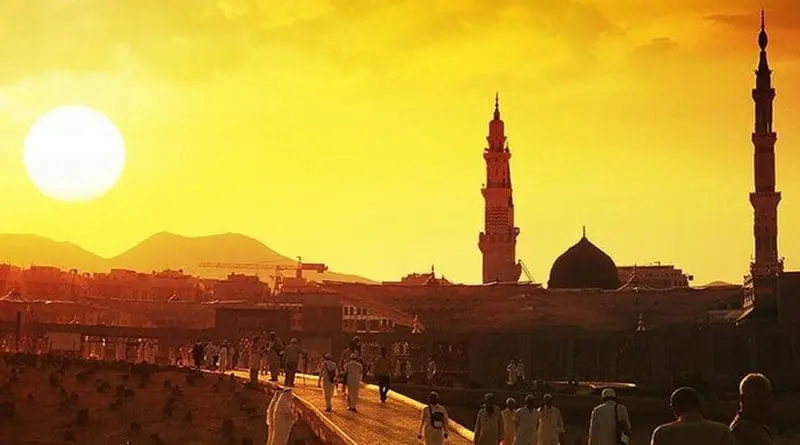Khashoggi Crisis Highlights Why Investment In Asia Is More Productive Than In Middle East – Analysis
Growing Western political and corporate reluctance to be associated with Saudi Arabia in the wake of the suspected killing of journalist Jamal Khashoggi spotlights fundamentally different investment strategies and environments in the bulk of Asia and the oil-rich Gulf states, the continent’s most western flank.
The Khashoggi crisis highlighted the fact that much of investment in the Gulf, irrespective of whether it is domestic, Western or Chinese, comes from financial, technology and other service industries, the arms industry or Gulf governments. It is focused on services, infrastructure or enhancing the state’s capacities rather than on manufacturing, industrial development, and the nurturing of an independent private sector.
The crisis has put on display the risks Gulf governments run by adopting policies that significantly tarnish their international reputations. Technology, media, financial and other services industries as well as various European ministers and the US Treasury Secretary have cancelled, in the wake of Mr. Khashoggi’s disappearance and likely killing while visiting the Saudi consulate in Istanbul, their participation in Davos in the Desert, a high-profile investors’ conference in Riyadh later this month.
By contrast, the military industry, with US President Donald J. Trump’s encouragement, has proven so far less worried about reputational damage.
Sponsored by Saudi Crown Prince Mohammed bin Salman, who is suspected of being responsible for Mr. Khashoggi’s likely murder, the conference was intended to attract investment in his Vision 2030 plan to reform and diversify the Saudi economy.
In highlighting differences in investment strategies in the Middle East and the rest of Asia, the fallout of Mr. Khashoggi’s disappearance goes beyond the parameters of a single incident. It suggests that foreign investment must be embedded in broader social and economic policies as well as an environment that promises stability to ensure that it is productive, contributes to sustainable growth, and benefits broad segments of the population.
In contrast to the Gulf where, with the exception of state-run airlines and DP World, Dubai’s global port operator, the bulk of investment is portfolios managed by sovereign wealth funds, trophies or investment designed to enhance a country’s international prestige and soft power, major Asian nations like China and India have used investment to lift hundreds of millions of people out of poverty, foster a substantial middle class, and create an industrial base.
To be sure, with small populations, Gulf states are more likely to ensure sustainability in services and oil and gas derivatives rather than in manufacturing and industry. Nonetheless, that too requires enabling policies and an education system that encourages critical thinking and the freedom to question, allow one’s mind to roam without fear of repercussion, and grants free, unfettered access to information – categories that are becoming increasingly rare in a part of the world in which freedoms are severely curtailed.
China’s US$1 trillion, infrastructure-driven Belt and Road initiative may be the Asian exception that would come closest to some of the Gulf’s soft power investments. Yet, even so, the Belt and Road initiative, designed to alleviate domestic over capacity by state-owned companies that are not beholden to shareholders’ short term demands and/or geo-political gain, contributes to productive economic growth in the People’s Republic itself.
Asian nations, moreover, have been able to manage investors’ expectations in an environment of relative political stability. By contrast, Saudi Arabia damaged confidence in its ability to reform and diversify its oil-based economy when after repeated delays it suspended indefinitely plans to list five percent of its national oil company, Saudi Arabian Oil Company or Aramco, in what would have been the world’s largest ever initial public offering.
The Khashoggi crisis and the Aramco delay followed a series of political initiatives for which there was little equivalent in the rest of Asia. These included the Saudi-United Arab Emirates military campaign in Yemen causing the world’s worst post-World War Two humanitarian crisis; the 16-month-old diplomatic and economic embargo of Qatar by Saudi Arabia, the UAE, Bahrain and Egypt;
the detention and failed effort to force Lebanese Prime Minister Saad Hariri to resign; and the diplomatic Saudi spat with Canada in response to a tweet criticizing the kingdom’s human rights record. As a result, foreign direct investment in Saudi Arabia last year plunged to a 14-year low.
All of this is not to say that the rest of Asia does not have its own questionable policies such as Chinese claims in the South China Sea or the Pakistani-Indian feud, and questionable business practices such as China’s alleged industrial espionage. However, with the exception of China’s massive repression of Turkic Muslims in its north-western province of Xinjiang, none of these are likely to fundamentally undermine investor confidence, derail existing social and economic polices that have produced results or produce situations in which avoidance of reputational damage becomes a priority.
At the bottom line, China is no less autocratic than the Gulf states, while Hindu nationalism in India fits a global trend towards populism and illiberal democracy. Nevertheless, what differentiates much of Asia from the Gulf and accounts for its economic success are policies that ensure a relatively stable environment and are focussed on social and economic enhancement rather than primarily on regime survival. That may be the lesson for Gulf rulers.

